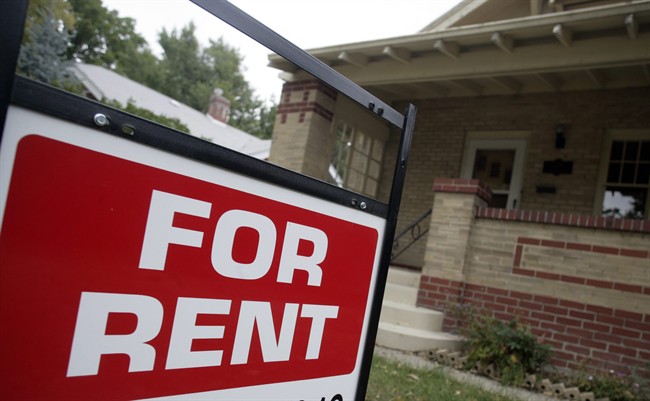A new housing market study suggests only one-third of renters in Peterborough would be able to afford a recently converted one-bedroom apartment.

Released on Thursday morning, the Canada Mortgage and Housing Corporation study “Peterborough Rental Market: Growth through Conversions” examines whether rental conversions allow for more affordable units than newly built rentals and the income levels needed to meet affordability criteria.
“Conversions of non-residential structures represent an additional way of creating new rental supply, with wider rent ranges, either below or above market rents,” said Olga Golozub, senior analyst on the report.
The report compared rents of conversion units and other rentals in the city and area from 2014-2018 which saw about 200 conversions built, mainly in the downtown core. The study determined that a renter needed a household income of at least $44,100 before taxes in 2018 to rent a converted one-bedroom apartment.
However, 65 per cent of city rents make less than $44,000.
An actual household pre-taxed income estimate for renter households in the Peterborough Census Metropolitan Area was $42,000 in 2018.
During that period, about 44 per cent of the conversions had rent 10 per cent below market, but that share mainly consisted of the Mount Community Centre on Monaghan Road and the former Knox United Church on Wolfe Street — both of which received government funding.

Get weekly health news
“We know that where we’re not hitting is people with very low incomes and people who’ve been chronically homeless,” said Rebecca Morgan Quin, the city’s manager of housing. “So that’s our really big challenge right now
is how can create purpose built housing for those populations.”
Quin says conversions are becoming more common in the city.
“I’m not surprised to see conversions are happening,” she told Global News Peterborough. “We are just not seeing enough purpose-built rental overall.”
The conversions’ total average rent was $1,223 in October 2018.
The report says 56 per cent of privately-owned conversions have rents that are 9.5 per cent higher than newly constructed purpose-built rental apartments.
“The conversions that we’ve seen have been sort of split between more high end conversions and more of what we would call below market or affordable conversions,” said Quinn.
The report noted Zone 1 (downtown) had the most conversions from 2014-2018 with 29 privately owned purpose-built rental apartments. Ninety-four per cent of all converted units are centrally located.
“It confirms that conversions are usually located with urban areas and not in suburban neighbourhoods, where typically more land is available for development,” the report reads. “Often, redevelopment projects like conversions present the only opportunity for the growth of rental supply in a desirable, transit-supportive downtown area.”
Quin says the city is working with landlords to help them better understand the needs of vulnerable tenants and how best to support them.
By the numbers
Apartment units downtown rent (October 2018)
- 1-bedroom: $869
- 2-bedroom: $1,067
- 3-bedroom: $1,308
Converted apartments downtown rent (October 2018)
- 1-bedroom: $1.102
- 2-bedroom: $1,261
- 3-bedroom: Data unavailable
Income distribution of renter households
- Less than $44,000: 65 per cent
- $44,000 and above: 35 per cent
- $50,000 and above: 29 per cent
WATCH: Money 123: Renting vs. owning










Comments
Want to discuss? Please read our Commenting Policy first.